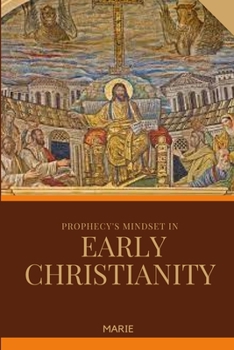Prophecy's Mindset in Early Christianity
This book offers a revelatory exploration into the foundations of the earliest Christian communities and their distinctive prophetic character. Drawing from meticulous analysis of primary sources such as 1 Corinthians, Revelation, Acts, and other Pauline texts, this scholarly work uncovers the profound influence of prophetic experiences on the development of Christianity.
At the heart of this book lies a compelling investigation into the prophetic community that defined early Christianity. Delve into the pages to uncover how the Pauline communities, along with a broader segment of nascent Christianity, embraced and celebrated enthusiastic or ecstatic encounters as integral elements of their spiritual life and communal worship. The rich tapestry of historical and textual evidence within the pages demonstrates how the practice of prophecy, glossolalia, and other forms of ecstatic experiences were not only accepted but deemed essential to the early Christian way of life.
Drawing insights from 1 Corinthians, Revelation, and the historical context depicted in Acts, the book substantiates the prevalence of these practices as a core aspect of early Christian spirituality. Further illumination is cast upon the phenomenon through references to contemporary prophecy found in various Pauline texts. The reader will also encounter a thought-provoking examination of the criteria for testing prophets, as outlined in the intriguing formula presented in 1 John 4.2/.
"Prophetic Dimensions of Early Christianity" offers readers an opportunity to traverse the annals of history and immerse themselves in the vibrant spiritual landscape of the past. Through meticulous research and insightful analysis, the book illustrates how the prophetic fervor of the early Christians played a pivotal role in shaping their beliefs, worship, and communal dynamics.
This scholarly work is an indispensable resource for those seeking to understand the profound intersection of spirituality, prophecy, and communal worship in the earliest days of Christianity. It offers a fresh perspective on the dynamic interplay between ecstatic experiences and the formation of the early Christian identity, inviting readers to reconsider the foundations upon which modern Christian practices and beliefs are





